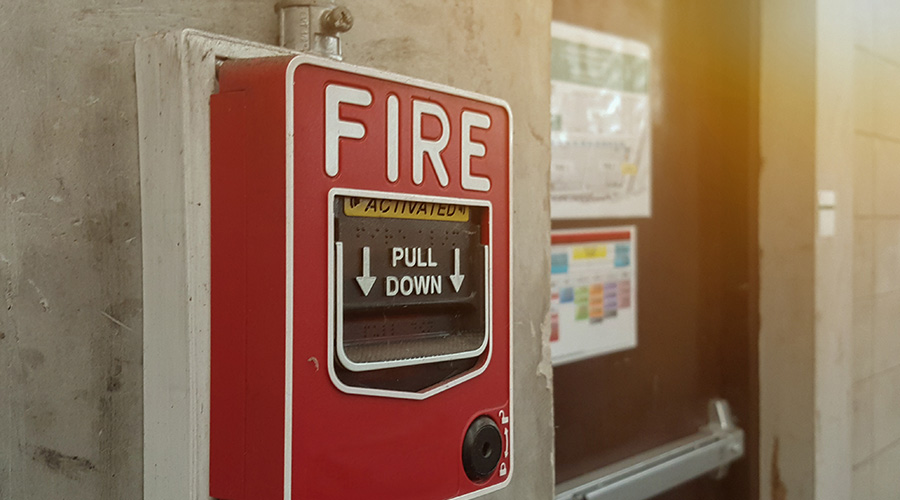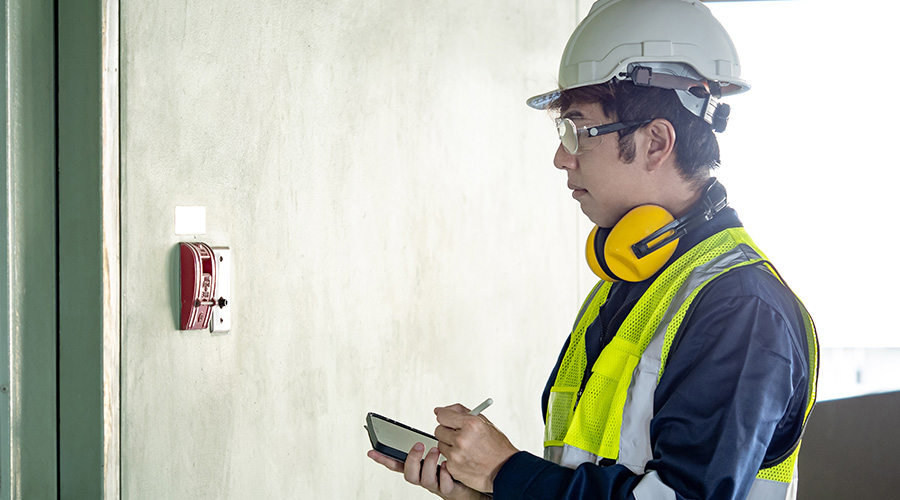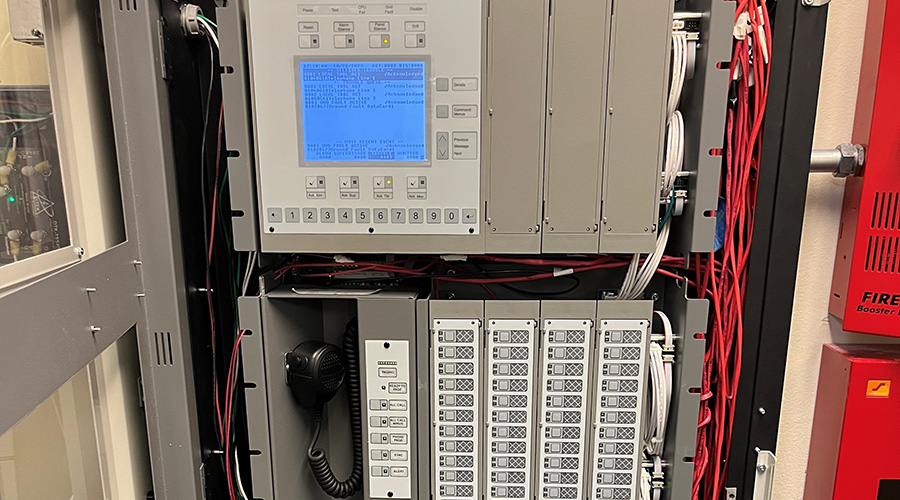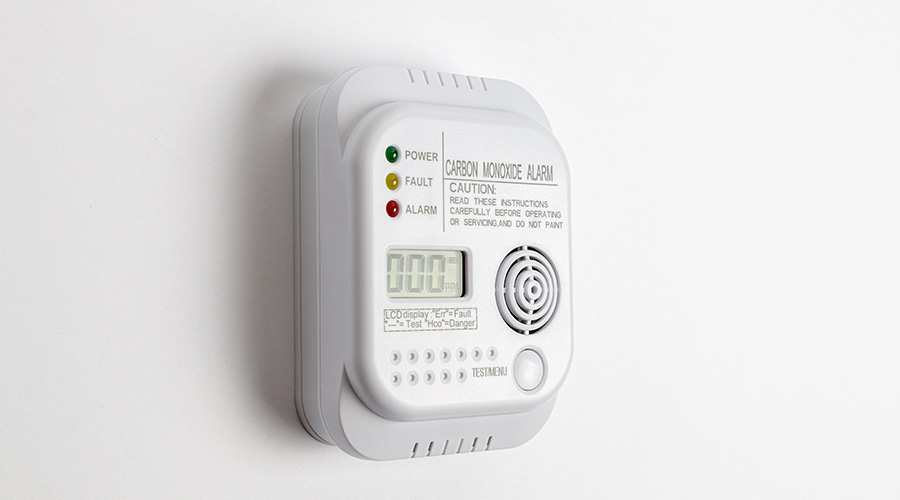How Floor Wardens Aid In Emergency Evacuations
One way to do this is with floor wardens. On each floor — or in certain areas of the building if it's a low-rise building — have someone in place whose responsibility it is to take charge of the evacuation process in an emergency.
At the Los Angeles County Metropolitan Transportation Authority, floor wardens have a number of responsibilities during an evacuation, says Phyllis Meng, deputy executive officer, general services.
"They have to make sure that everybody goes down the stairs safely," she says. They also "need to sweep the floor and make sure that everybody's off the floor. If you have a private office, they'll put a Post-It or something on that office to make sure that they checked that. They make sure they check the bathrooms, and that they're the last ones off the floor."
Once the floor warden has cleared the floor and made his or her way outside, the next responsibility is meeting at a designated safe area — occupants find theirs by looking for someone holding a sign with their assigned number on it — and taking the roll to see if anyone's missing. If so, that information is reported to Meng's team, which shares it with fire or police departments on scene. To keep floor wardens reminded of the importance of actually calling the individual roll, Meng will shake things up during drills.
"That day, I will tell some people to go to the cafeteria, because they're going to become 'missing,'" she says. "I'm trying to train the floor wardens to count heads and let me know who's not there, because I have a list of who's supposed to not be there. That way, when something does happen (in an emergency), they'll know what to do."
But, in some settings, it can be more challenging to do a headcount, says Robert Lang, chief security officer, Kennesaw State University. He focuses on training occupants to sweep the building to make sure it's clear, because in a college setting, it can be hard to identify who's supposed to be in a building at a certain time — and even harder to keep them from wandering off.
"When I was at Georgia Tech," Lang says, "when we would evacuate a particular building, half the kids went up to the corner bar and started having a couple beverages."
Empowering Occupants
A step beyond the floor warden role is giving occupants the ability to initiate an evacuation on their own. While it is generally true that an occupant would not get in trouble for pulling a fire alarm in an actual emergency, it is also true that occupants often hesitate to do so because of the risk of a false alarm or lack of access to an alarm.
Related Topics:
















